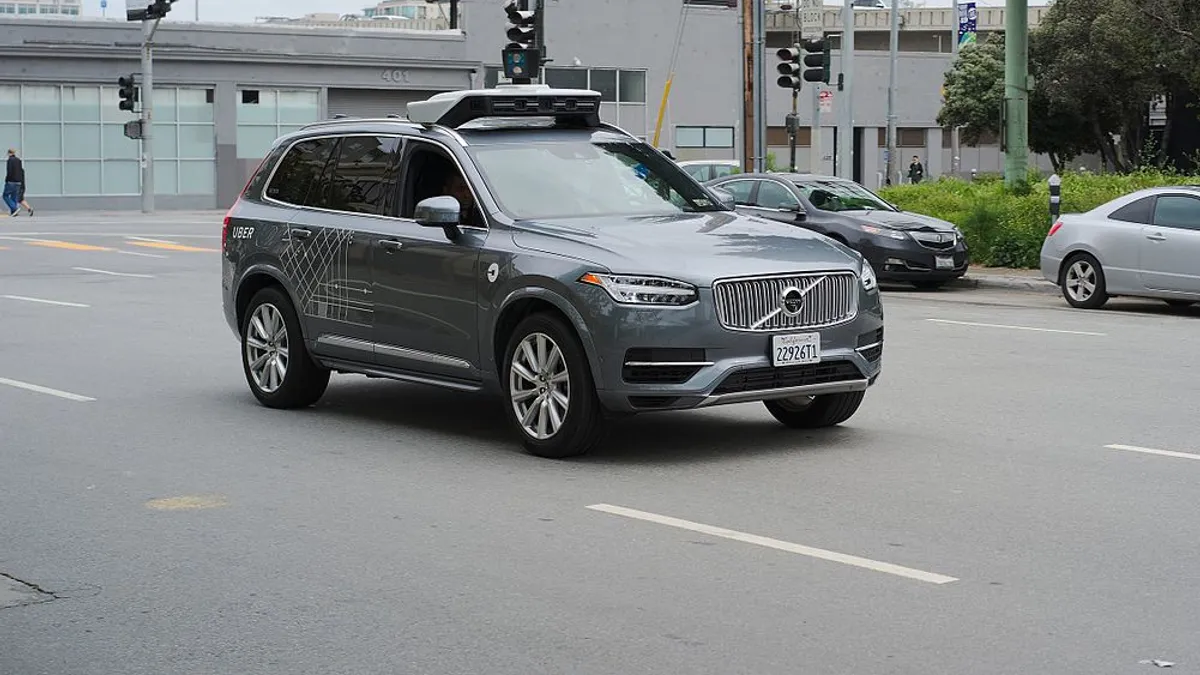Dive Brief:
- Uber will bring its self-driving vehicle operation to Dallas, TX in November, starting with manual driving to collect data on the city's roads, the company announced in a Medium post.
- Unlike the pilots currently running in Pittsburgh in San Francisco, Uber is not committing to operate self-driving vehicles in Dallas. The data collection from a manually controlled car is the "first step in our development process and key to validating our expansion approach," wrote Austin Geidt, head of Uber Advanced Technologies Group (ATG) Strategy.
- Dallas' "modern infrastructure, unique traffic patterns, road characteristics, and climate" will help Uber gather more variable information to build into its high-definition maps and simulations, Geidt wrote.
Dive Insight:
Uber has made autonomous vehicles (AVs) a key part of its strategy for future growth and has ramped up investment and testing in emerging technology. That effort took a step back after a fatal crash while testing in Tempe, AZ in 2018, causing Uber to suspend its public tests for nine months (local authorities cleared Uber of criminal liability, but federal investigators are still probing the incident).
The expansion to Dallas reflects Uber's conservative and public approach to its AV testing in the aftermath of the crash. Uber already has a footprint in Dallas, offering Uber Eats, Jump scooters and Uber Freight (Uber will also test its Elevate flying taxi concept there).
Texas has also been supportive of the AV industry, passing a law in 2017 to allow self-driving cars on public roads and creating an AV task force earlier this year. In an interview, Uber ATG spokesperson Sarah Abboud said the combination of a "friendly regulatory environment and a close relationship" meant that Dallas emerged as a viable site for future AV testing and operations.
The initial focus will be on data gathering, collecting information that can be plugged into Uber's high-definition maps, and simulations and test tracks. It's the kind of information that Uber has gathered in its test cities, but Abboud said that Dallas — with its relatively new infrastructure and warmer climate — will provide different data compared to what's been gathered in Pittsburgh and San Francisco. Capturing local characteristics will help ensure that AVs can operate smoothly in any market, which is why companies are increasingly looking to diversify their test sites.











